Physical Address
304 North Cardinal St.
Dorchester Center, MA 02124
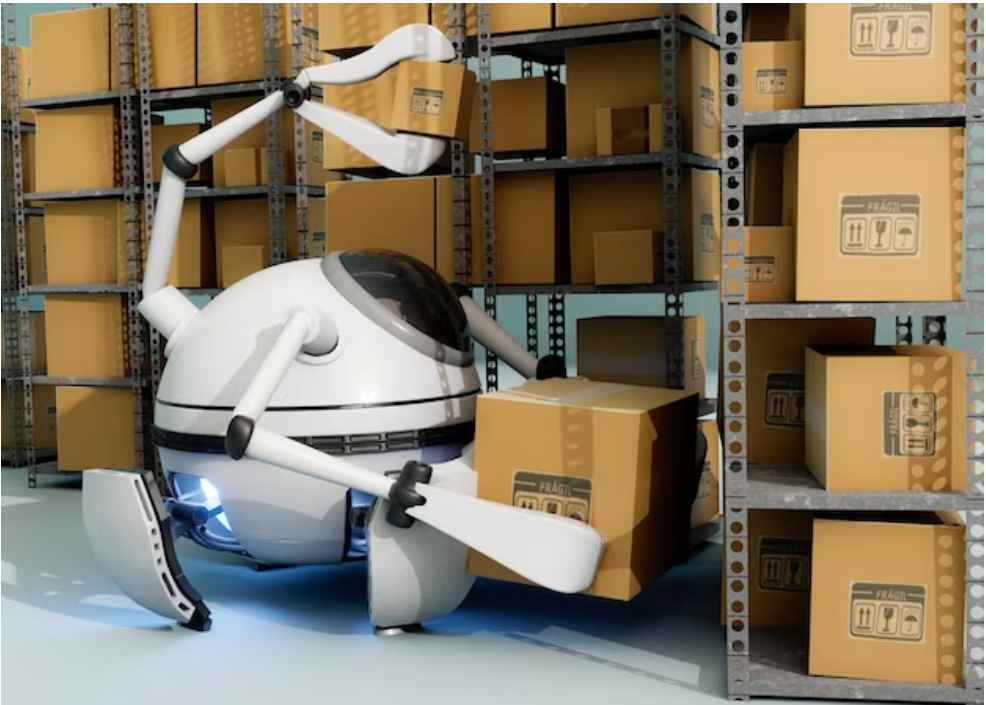
AI in logistics can increase efficiency, accuracy, and transparency in the supply chain process, resulting in cost savings and improved customer satisfaction.
The integration of artificial intelligence (AI) in the logistics industry has revolutionized the way businesses manage their supply chains.
With AI systems, companies can streamline operations, optimize routes, track inventory in real-time, and increase warehouse management.
This technology enables faster and more accurate decision-making, reducing errors and improving efficiency.
AI-powered algorithms can analyze large volumes of data, predict demand, and optimize inventory levels, enabling businesses to meet customer demands promptly.
Furthermore, AI-enabled logistics solutions can improve transparency by providing real-time information to stakeholders, ensuring better collaboration and customer satisfaction.
The use of AI in logistics has proven to be a game-changer for businesses, increasing operational efficiency, reducing costs, and enhancing overall supply chain performance.
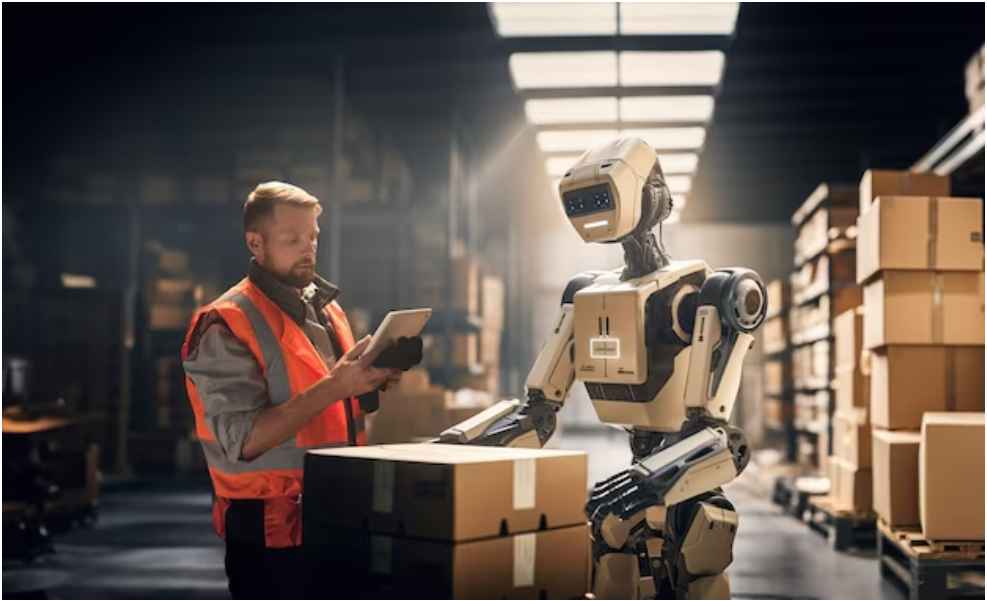
In today’s fast-paced world, businesses are constantly searching for innovative solutions to streamline their logistics operations and improve efficiency.
One such solution that has gained significant attention is Artificial Intelligence (AI).
By harnessing the power of AI, companies can revolutionize their logistics processes with advanced automation and intelligent decision-making capabilities.
In this blog post, we will discover the concept of AI in logistics, its definition, and how it has evolved.
Artificial Intelligence, often abbreviated as AI, refers to the simulation of human intelligence in machines that are programmed to think, learn, and problem-solve like humans.
In the context of logistics, AI encompasses a wide range of technologies and algorithms that enable machines to perform tasks, make predictions, and optimize operations with minimal human intervention.
It involves the use of data-driven insights and cognitive computing to improvee decision-making and drives operational efficiency.
The use of AI in logistics has come a long way since its inception. Initially, AI was primarily used for simple repetitive tasks such as inventory management and demand forecasting.
However, with advancements in technology and data analytics, AI has evolved to tackle complex logistical challenges, delivering unprecedented levels of efficiency and cost-effectiveness.
One of the breakthroughs in the evolution of AI in logistics is the introduction of machine learning algorithms.
These algorithms enable AI systems to analyze vast amounts of data, identify patterns, and make accurate predictions.
By leveraging historical data and real-time information, machine learning models can anticipate customer demand, optimize routing and scheduling, and even predict potential disruptions in the supply chain.
Another significant development in AI for logistics is the integration of robotics and automation.
Autonomous vehicles, drones, and robotic warehouse systems are transforming the way goods are transported, sorted, and stored.
These technologies not only expedite the logistics process but also reduce human error and minimize labor costs.
Furthermore, the advent of natural language processing and computer vision has improved AI’s capabilities in logistics.
Natural language processing allows AI systems to understand and interact with humans through voice commands or written text, enabling efficient communication and coordination.
Computer vision enables AI systems to perceive and interpret visual information, such as reading barcodes or analyzing images. which is particularly useful in tasks like inventory management and quality control.
AI is revolutionizing the logistics industry, providing businesses with newfound efficiency, accuracy, and cost savings.
With its ability to automate and optimize various processes, AI is transforming the way goods are transported, stored, and delivered.
Stay tuned to our blog for more insights into the different applications of AI in logistics and its potential impact on the future of supply chain management.

Artificial Intelligence (AI) is revolutionizing the logistics industry, enabling innovative solutions to streamline operations and improve efficiency.
Through several applications of AI, logistics companies can enhance forecasting and demand planning, optimize routing, and automate warehouse processes. Let’s dig into each of these applications in detail.
An important aspect of logistics is accurate forecasting and demand planning which allows companies to efficiently manage inventory levels, optimize transportation routes, and ensure timely deliveries.
AI plays a important role in this area by analyzing historical data, market trends, and customer behavior to make accurate predictions.
Using machine learning algorithms, AI systems can identify patterns and trends in large datasets, providing valuable insights into customer demand fluctuations.
This helps companies to optimize inventory levels, reduce stockouts, and minimize excess inventory costs.
By automating the forecasting process, AI enables logistics companies to make data-driven decisions, ensuring the right products are available at the right time and location.
Optimizing routes is essential to minimize transportation costs, improve delivery times, and increase overall efficiency in logistics operations.
AI-powered optimization algorithms can analyze factors such as distance, traffic patterns, and delivery windows to determine the most efficient routes for many transport modes.
With the help of historical data and real-time inputs, AI systems can dynamically adjust routing plans, taking into account variables like weather conditions and traffic congestion.
By continuously optimizing routes, logistics companies can reduce fuel consumption, lower carbon footprints, and ensure timely deliveries, ultimately enhancing customer satisfaction.
Warehouse operations require seamless coordination and efficient handling of goods.
AI technology is revolutionizing this aspect of logistics through robotic automation and intelligent inventory management systems.
Robots equipped with AI can handle repetitive and labor-intensive tasks such as picking, sorting, and packing, significantly reducing human error and increasing productivity.
AI-powered inventory management systems can accurately track and organize stock, optimize shelf space, and reduce the time spent on manual inventory checks.
By automating warehouse processes with AI, logistics companies can improve operational efficiency, reduce costs, and increase order accuracy.
This ultimately leads to faster order fulfillment, better inventory management, and improved customer satisfaction.
Artificial intelligence (AI) has revolutionized the logistics industry, bringing a multitude of benefits that streamline operations and improve customer satisfaction.
From improved efficiency and cost savings to improved customer experience and reduced errors and risks, AI is transforming the way goods and products are moved and delivered.
In this article, we will explore the wide-ranging advantages that AI brings to logistics.
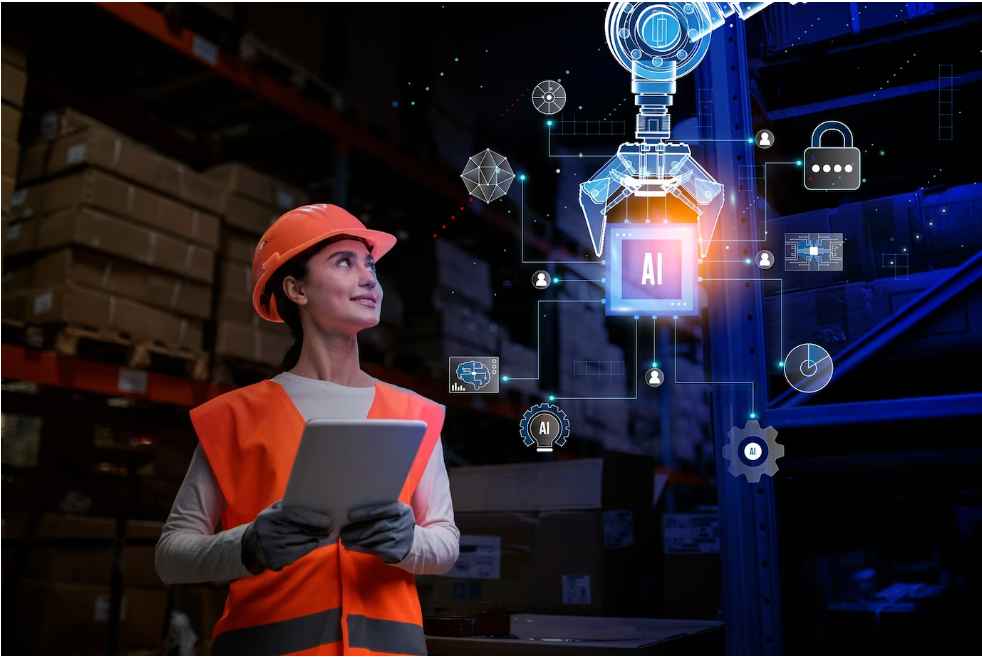
AI-powered technologies enable logistics companies to optimize their operations, resulting in improved efficiency and substantial cost savings.
Through advanced algorithms and machine learning capabilities, AI can analyze vast amounts of data to identify patterns, predict demand, and optimize route planning.
By automating tasks such as inventory management and supply chain optimization, AI streamlines processes and eliminates unnecessary time and costs.
AI enables real-time tracking and monitoring of shipments, allowing logistics companies to make informed decisions and minimize delays.
With the ability to analyze traffic conditions, weather patterns, and other factors, AI can suggest alternative routes and transportation modes to reduce transit times and costs.
The integration of AI in logistics has significantly improved the customer experience. Through AI-powered chatbots and virtual assistants, logistics companies can provide 24/7 customer support, swiftly addressing inquiries and resolving issues.
These AI-powered systems can handle a range of customer queries, from tracking the status of shipments to updating delivery schedules and providing customers with instant, personalized assistance.
Moreover, AI enables predictive analysis to anticipate customer preferences and behavior, enhancing personalized recommendations and ensuring timely delivery.
By leveraging AI capabilities, logistics companies can tailor their offerings, optimize inventory management, and provide accurate delivery estimates. It satisfies customer expectations and fostering loyalty.
AI plays a crucial role in reducing errors and minimizing risks in logistics operations.
By automating manual processes and providing real-time data analysis, AI eliminates human errors and increases reliability.
Machine learning algorithms can identify potential risks and proactively address them, preventing delays, damages, and other issues.
Furthermore, AI-powered systems can monitor and track compliance with regulations, reducing the risk of penalties and ensuring adherence to industry standards.
From monitoring temperature-controlled shipments to managing hazardous materials, AI mitigates operational risks and maintains a safe and secure supply chain.
In conclusion, the benefits of AI in logistics are extensive and impactful. From improving efficiency and cost savings to enhancing the customer experience and reducing errors and risks.
AI revolutionizes the logistics industry, making it more agile, responsive, and efficient. By adopting AI technologies, logistics companies can stay ahead of the competition and meet the increasing demands of modern logistics.
Artificial Intelligence (AI) has emerged as a game-changer for the logistics industry, with its ability to streamline processes, increase efficiency, and boost overall productivity.
However, integrating AI into logistics operations is not without its challenges. From ensuring data quality and seamless integration to addressing workforce concerns and safeguarding security and privacy.
logistics companies are faced with different obstacles when implementing AI. Let’s find out some of the key challenges in more detail.
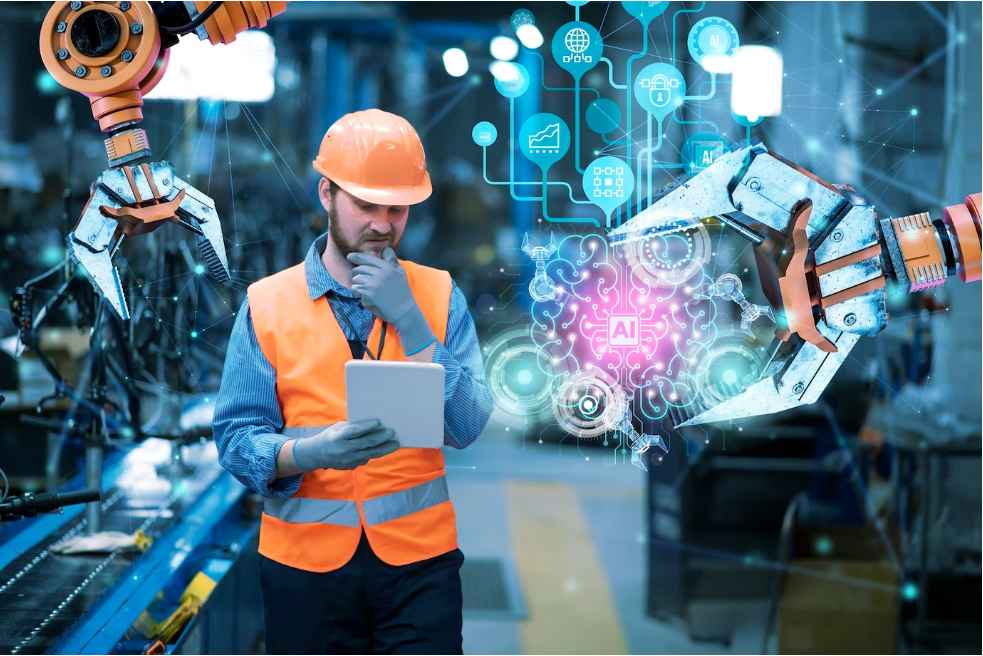
One of the major hurdles in implementing AI in logistics is maintaining high-quality data and integrating it seamlessly into AI systems.
Logistics operations generate massive volumes of data from multiple sources, including suppliers, carriers, and customers.
However, the data obtained is often unstructured, incomplete, or inconsistent, making it challenging to harness its full potential.
To overcome this challenge, logistics companies need to invest in robust data management systems and employ data cleansing techniques to improve accuracy and reliability.
Introducing AI into logistics operations raises concerns among the workforce regarding job security and relevance.
Employees fear that AI-powered systems may replace human workers, leading to unemployment or skill obsolescence.
To address these concerns, logistics companies must educate and upskill their workforce on the benefits of AI and emphasize the role of humans in collaboration with AI technology.
By highlighting how AI can augment their abilities and enable them to focus on more complex tasks, companies can alleviate workforce concerns and foster a positive attitude towards AI integration.
As AI becomes integral to logistics operations, ensuring the security and privacy of sensitive data becomes paramount.
AI systems rely on vast amounts of data, including customer information, transactional details, and supply chain data.
Any breach in security can have severe consequences, including financial loss and damage to the company’s reputation.
To safeguard against such risks, logistics companies must implement robust cybersecurity measures, including encryption, secure access protocols, and regular vulnerability assessments.
They must comply with relevant data protection regulations to ensure customer trust and maintain confidentiality.
As the world continues to adopt digitalization, the logistics industry is also undergoing a significant transformation.
One of the key drivers of this change is the introduction of Artificial Intelligence (AI) into logistics operations.
AI has the potential to revolutionize the way goods are transported, stored, and delivered, making processes more efficient and cost-effective.
In this article, we will analyze three major future trends and innovations in AI logistics – Autonomous Vehicles and Drones, Blockchain in Supply Chain, and AI-Enabled Supply Chain Networks.
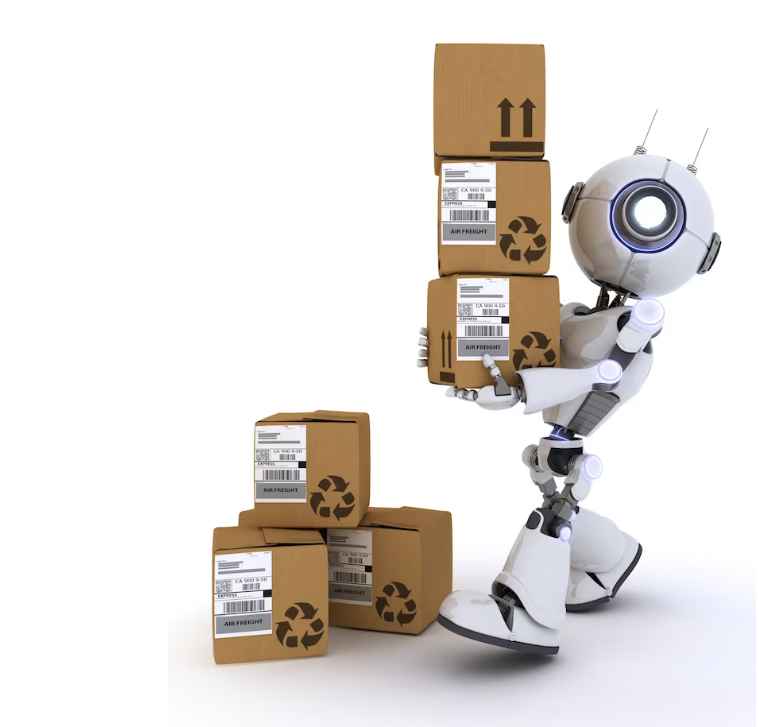
The advent of autonomous vehicles and drones in the logistics sector is set to reshape the transportation landscape.
AI-powered self-driving trucks and delivery drones offer numerous benefits, including increased efficiency, reduced human errors, and lower fuel consumption.
With the ability to navigate traffic and adapt to road conditions, autonomous vehicles save time and money, enhancing the overall speed and reliability of logistics processes.
Furthermore, drones provide a unique advantage in last-mile delivery. With their ability to reach remote locations and maneuver through congested urban areas, drones ensure faster delivery times and improved customer satisfaction.
By leveraging AI algorithms, these unmanned aerial vehicles can optimize delivery routes and identify the most efficient paths, reducing delivery costs and improving overall supply chain performance.
Blockchain technology has gained popularity in recent years due to its ability to provide transparency, security, and traceability in various industries.
In the logistics sector, blockchain is revolutionizing supply chain management by creating a decentralized and immutable record of transactions.
The implementation of blockchain in logistics enables seamless collaboration and information sharing among different stakeholders, including manufacturers, suppliers, carriers, and customers.
With blockchain, the supply chain becomes more efficient and less prone to errors or fraud. The distributed ledger technology ensures real-time visibility into the movement of goods, allowing for greater accountability and improved quality control.
Blockchain eliminates the need for intermediaries, reducing costs and speeding up transactions.
This innovation enables businesses to optimize their supply chain processes and build trust with customers through improved transparency.
AI-enabled supply chain networks leverage advanced machine learning algorithms and predictive analytics to optimize inventory management, demand forecasting, and capacity planning.
By analyzing vast amounts of data in real-time, AI systems can make accurate predictions, helping businesses optimize their operations and make informed decisions.
These AI-powered supply chain networks enable businesses to forecast and respond to changes in demand, reducing inventory carrying costs and avoiding stockouts.
By continuously monitoring and analyzing data from many sources, such as customer orders, weather patterns, and market trends. AI systems can identify patterns and anomalies, allowing for proactive management of the supply chain.
In summary, the future of AI in logistics holds immense potential for efficiency improvements and cost savings.
From autonomous vehicles and drones to blockchain and AI-enabled supply chain networks, these innovations are reshaping the way goods are transported and managed.
Businesses that adopt these trends and harness the power of AI will be at an advantage in meeting evolving customer demands and staying competitive in the logistics industry.
AI is used in logistics to optimize routes, track shipments, manage inventory, and automate warehouse operations. It improves efficiency, reduces costs, and improves customer satisfaction by providing real-time insights and predictive analytics.
AI is used in the supply chain to streamline operations, improve forecasting accuracy, and improve decision-making. It enables real-time inventory management, demand prediction, and efficient transportation routing. AI-powered systems automate repetitive tasks, optimize order fulfillment, and reduce costs.
Amazon uses AI in logistics to optimize its delivery operations. AI algorithms analyze data to predict demand, optimize warehouse inventory, streamline delivery routes, and improve overall efficiency. This technology enables faster and more accurate order processing, ensuring timely deliveries and customer satisfaction.
Generative AI is used in logistics to optimize routes, reduce costs, and enhance supply chain management. It helps companies automate processes, forecast demand, and improve inventory management. With generative AI, logistics operations become more efficient, enabling faster deliveries and better customer satisfaction.
AI technology has significantly transformed the logistics industry, improving operational efficiency, reducing costs, and enhancing customer satisfaction. The integration of AI has enabled real-time data analysis, predictive analytics, and automation, enabling logistics companies to make data-driven decisions and optimize their supply chains.
As AI continues to evolve and become more sophisticated, we can expect even greater advancements in the logistics sector, ultimately revolutionizing the way goods are transported and delivered globally. Embracing AI in logistics is no longer a luxury, but a necessity for businesses to stay competitive in this digital age.